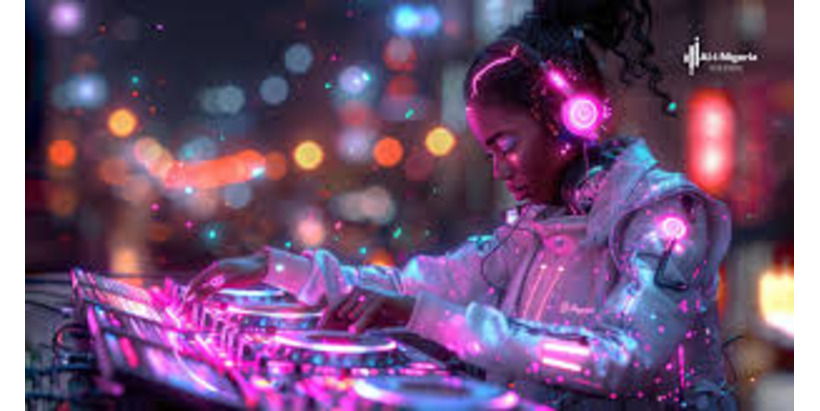In recent years, Nigeria has solidified its place as the heartbeat of global Afrobeats, producing infectious rhythms that dominate charts from Lagos to London. But behind every hit record is a producer — the often-unsung hero — who spends hours in the studio creating beats that make listeners move. Traditionally, this process required incredible technical skill, patience, and access to expensive equipment. Today, however, Artificial Intelligence (AI) is quietly revolutionizing this process, making beat creation faster, more accessible, and surprisingly more experimental than ever before.
AI in music production is not science fiction anymore — it’s a practical tool that’s reshaping how Nigerian producers work. Many young creators are now turning to AI-powered platforms like Boomy, Soundraw, Beatoven.ai, and Aiva to generate fresh drum patterns, chord progressions, or even entire instrumental loops in seconds. What used to take hours of manual programming can now be generated at the click of a button. This means producers can focus more on creativity — tweaking, arranging, and giving each beat its own unique “Nigerian flavor” — rather than spending hours just laying down the basics.
One of the most significant advantages AI brings is speed. In the competitive Nigerian music industry, where dropping consistent singles can make or break an artist’s career, speed is everything. A producer can use AI to generate multiple beat ideas quickly, then share them with artists in real time — even during a studio session. This fast workflow opens the door for more collaboration, more experimentation, and ultimately, more hits. Artists like Young Jonn, Sarz, and Pheelz have hinted in interviews that they are not afraid to incorporate tech tools into their process, and it wouldn’t be surprising if AI quietly plays a role in their beat-making sessions.
But it’s not just about speed; AI is enabling new levels of experimentation. Nigerian music thrives on rhythm, blending traditional percussions with modern elements like trap snares and EDM kicks. AI tools can analyze thousands of samples and suggest rhythmic combinations that a human producer might not have thought of on their own. Imagine an AI tool recommending a mix of talking drum patterns with amapiano log drums, then layering them with high-tempo shakers; it’s a playground for creativity. Producers who embrace this technology are finding new ways to stand out in an increasingly crowded market.

Of course, the rise of AI in beat making is not without its controversies. Some worry that heavy reliance on AI could make music sound too “generic” or take away the human touch that makes Nigerian music special. There are also questions about copyright, if an AI generates a melody based on patterns it has learned from thousands of existing songs, who truly owns that melody? Nigerian producers and copyright bodies will need to address these issues as AI adoption grows.
Yet, for many young, up-and-coming producers who cannot yet afford expensive gear or studio time, AI offers a powerful democratization of music production. With just a laptop and an internet connection, they can compete with big-name producers by creating professional-sounding beats from their bedrooms. This means more voices, more sounds, and more diversity in the Nigerian music space — something that can only push the genre forward.
As Nigeria continues to influence the global music industry, AI is likely to play an even bigger role. We may soon see collaborations where an artist works with an AI “co-producer” credited alongside human producers. We may also see Nigerian tech startups creating AI tools specifically for Afrobeats, tailored to our unique rhythmic patterns and cultural sound. The future of beat making looks faster, smarter, and more exciting, and Nigerian producers are not being left behind.
Added by
LyricsSphere
WRITE A COMMENT
You must be logged in to post a comment.
WRITE A COMMENT
You must be logged in to post a comment.


No comments yet